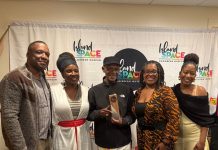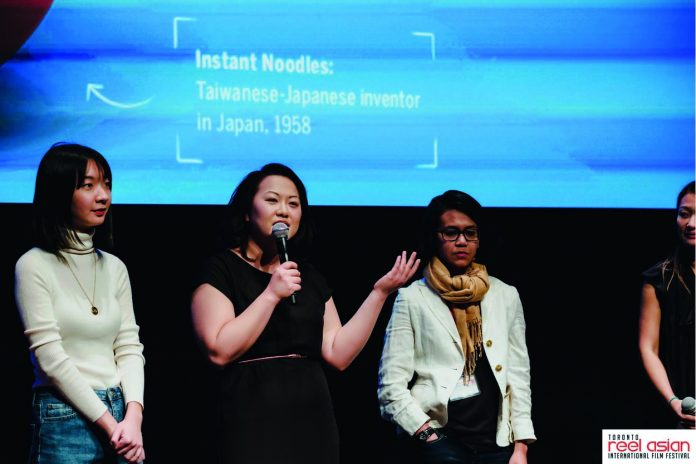
These creatives, born and bred in North America and deeply inspired by their roots, are engaging with their heritage and representing the Chinese Caribbean diaspora to create distinctive voices in art forms from food to film.
For second-generation kids from Chinese Caribbean immigrant families, weeknight dinners and bedtime tales mean much more than spending time together. These precious moments sharing stories and traditions become a gateway to past generations. No matter where loved ones go, their culture travels with them, shaping a sense of belonging that transcends borders.
Katarina Wong, Mixed Media
New York x Cuba
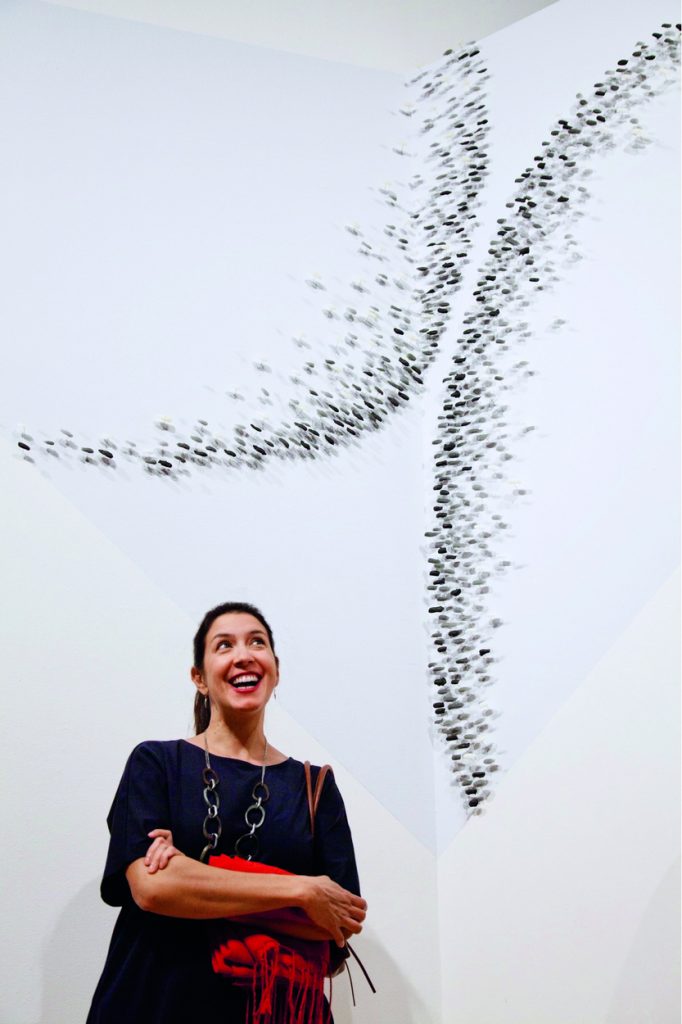
Art has always been a family affair for New York-based artist, writer and curator Katarina Wong. Wong remembers her creativity being encouraged as a small child. “My father would give me paint brushes and usually I would draw or paint as he worked at his drafting table,” she says. With a Chinese immigrant father and Cuban mother, Wong explores this legacy of migration throughout her mixed media practice.
These dynamics are writ large in her series “Azulejos,” which was prompted by the renovation of her apartment in Havana, Cuba. She became enchanted by the beauty and history of the traditional cement tiles, made from techniques brought over by the Spanish that evolved into something authentically Caribbean. Learning how artisans created these colorful tiles inspired her to meld their patterns with the iconic Chinese takeout box ― another object shaped by migration as immigrant Asian restaurateurs adopted an American innovation. She entangles these cultural threads further, painting the tile patterns in Chinese imperial yellow and the classic blue-and-white palette of Ming Dynasty porcelain.
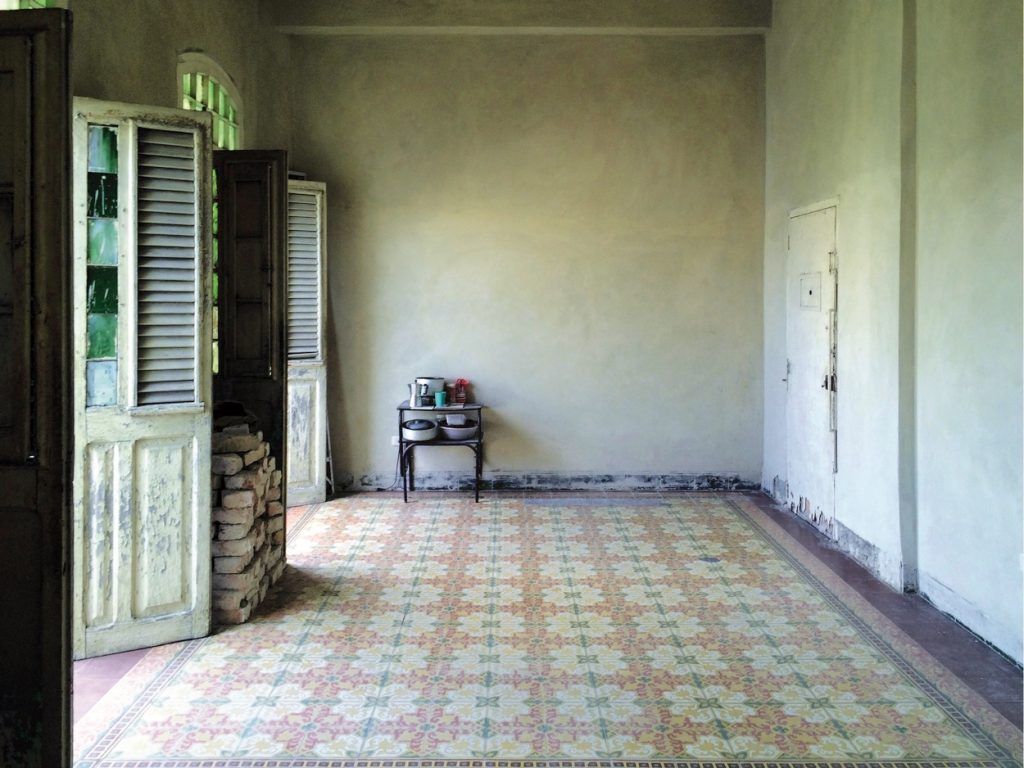
Photo courtesy of Katarina Wong
With a master’s degree in theological studies, Wong, deeply informed by the Buddhist ideology of dependent origination, investigates cultural intersections. “We’re all co-creating reality together,” she explains. “There’s no objective reality.” She explores this interconnection in her installation series, “The Fingerprint Project.” Creating molds of friends’ fingertips, she assembles each individual fingerprint into soaring patterns that mimic animal migrations.
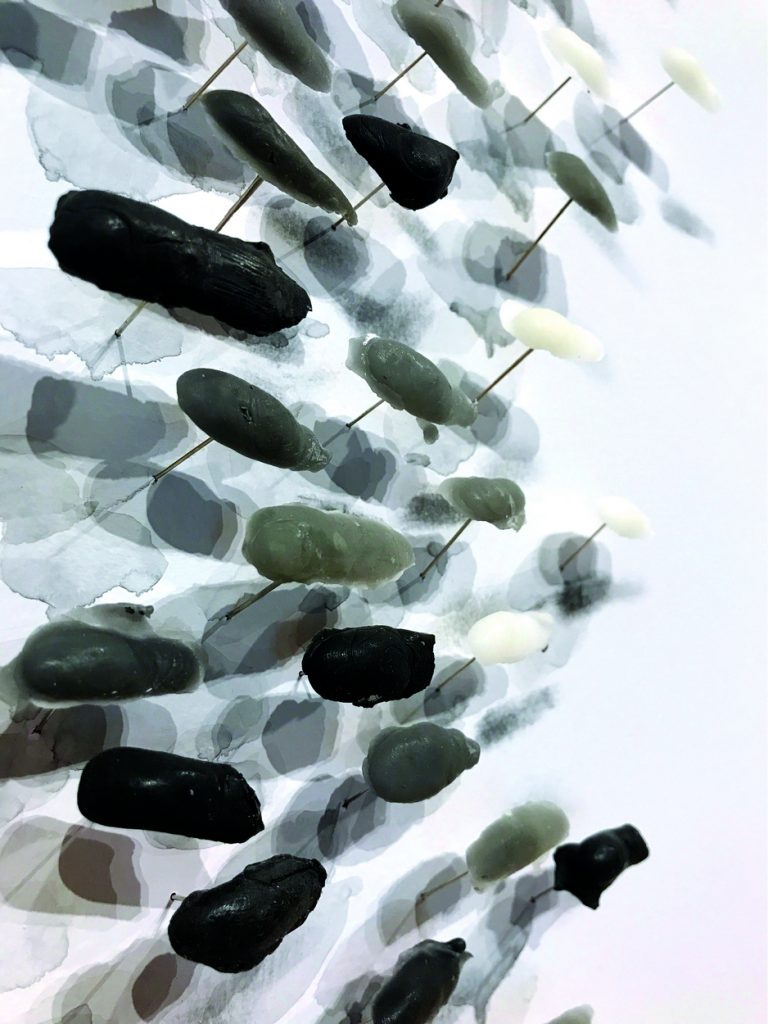
Photo courtesy of Katarina Wong
It’s a poetic reminder of the complexity underlying humanity, a sentiment that also resonates for the artist when thinking about her island roots. “I think it’s very easy to think of Caribbean people as monolithic,” Katarina Wong says. “What I hope to show is that the Caribbean is a complex and wonderful confluence of cultures and history.”
Craig Wong, Culinary Arts
Canada x Kingston
As owner and chef of famed Toronto restaurant Patois, Craig Wong attracted major accolades for his spin on Chinese-Caribbean cuisine. Before branching out on his own, he honed his skills at Michelin-starred restaurants like Alain Ducasse au Plaza Athénée in Paris and The Fat Duck in England. But his love for food goes back to the family kitchen, learning dishes from his Chinese-Jamaican parents who came to Canada in the early 1970s.
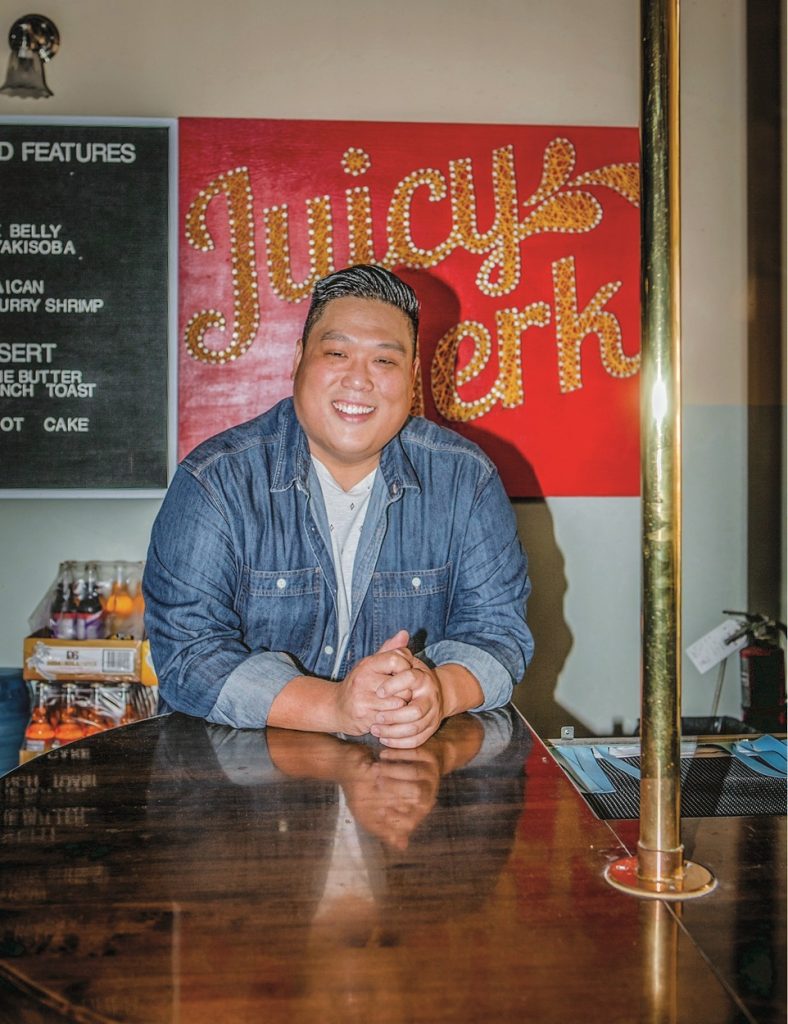
Photo courtesy of Craig Wong
He credits his China-born grandmother and his father, a Kingstonian, as the first to introduce him to his passion. Cooking alongside them, he learned how much Chinese culinary stylings actually helped shape Jamaican cuisine, “Even in just understanding how soy sauce has become an integral ingredient in jerk paste.” He remembers his grandmother fondly as the original creative improviser. “She was cooking Chinese food with Jamaican ingredients and she was cooking Jamaican food with the Chinese ingredients,” he recalls.
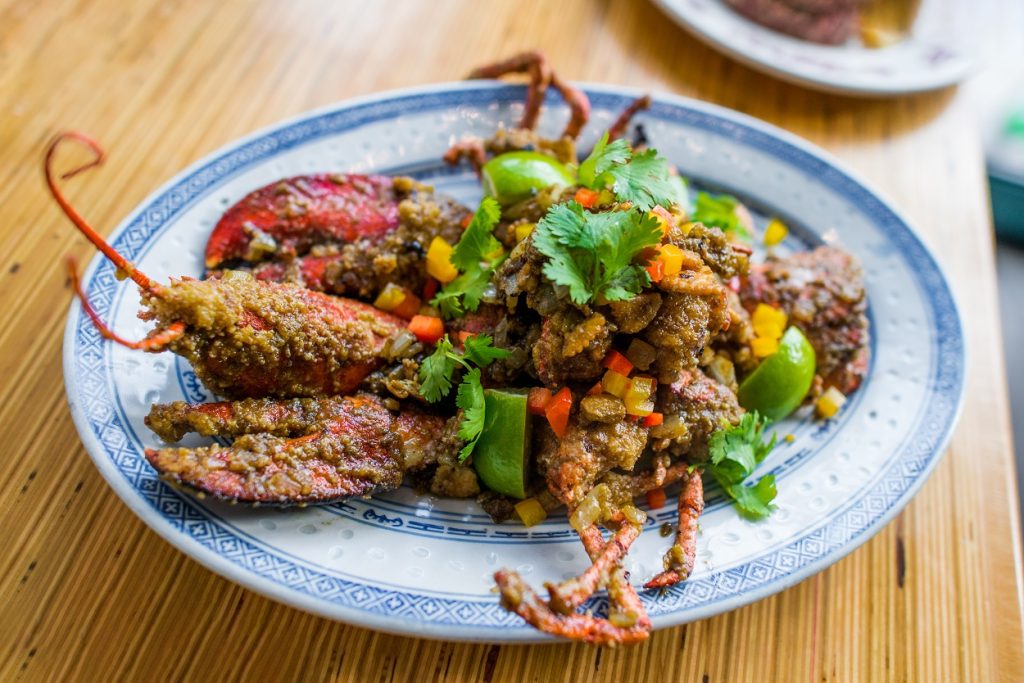
Jerk Lobster 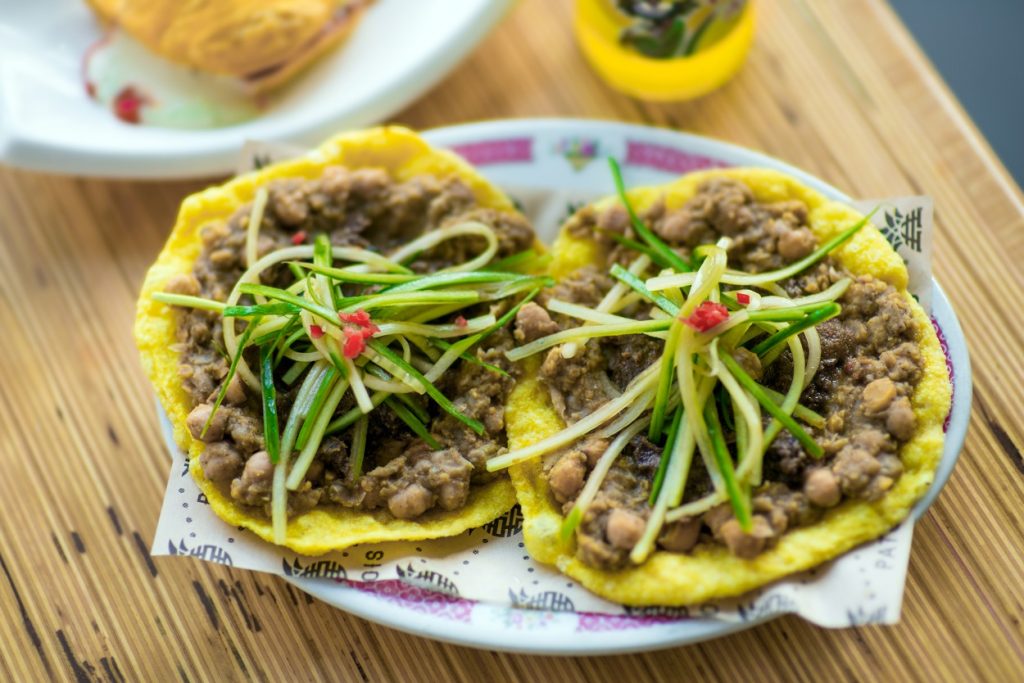
Trini Doubles
The chef brings this mindset to all his culinary ventures, launching his second Toronto restaurant, Bar Mignonette, and serving as executive chef for Dubai’s first Jamaican restaurant, Ting Irie. Wong likes to constantly experiment, exploring myriad techniques like American Southern smokers, churrasco rotisseries and high-powered woks. “I keep a little journal of all the different iterations of each dish,” he says. “I can have 34 different iterations of the same dish.”
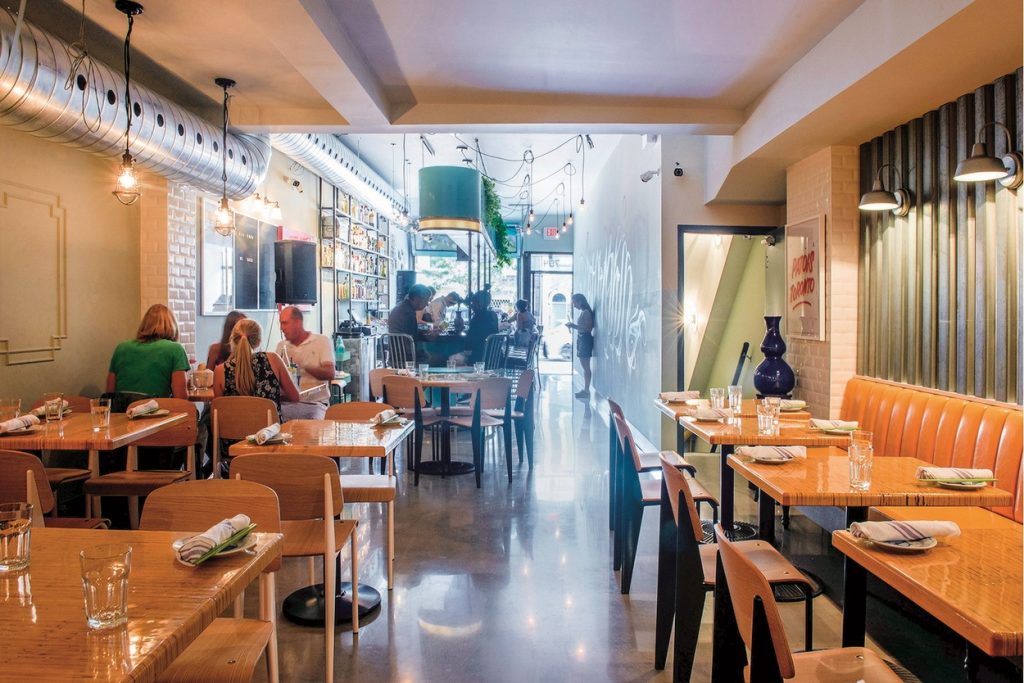
Photo courtesy of BIBD
Grounded by this playful approach, he rejects pursuits of culinary purity. Because for Craig Wong, Caribbean food evolved with so many different cultural influences. “That’s why I challenge anyone who says this is not authentic,” he said. “Food travels. Culture travels. And the more we say that food has to be this, the more we’re stopping ourselves from discovering new, delicious combinations.”
Danielle Ayow, Filmmaker
Canada x Trinidad
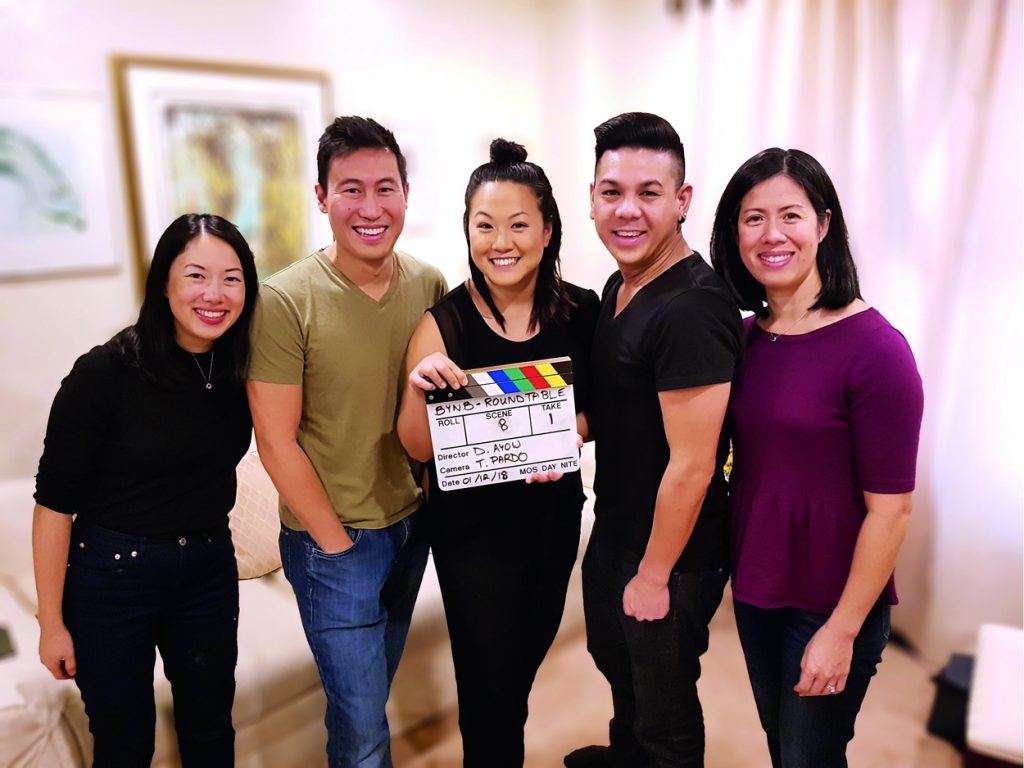
Photo courtesy of Danielle Ayow
Danielle Ayow grew up in Toronto, Canada, but her childhood home felt like a world of its own. “The Chinese Caribbean mix was a culture in itself,” laughed Ayow, an actor, comedian, writer and filmmaker. Her Chinese-Trinidadian parents instilled in her a deep love for her island roots, filling her early years with vibrant Caribbean festivals like Toronto’s iconic Caribana.
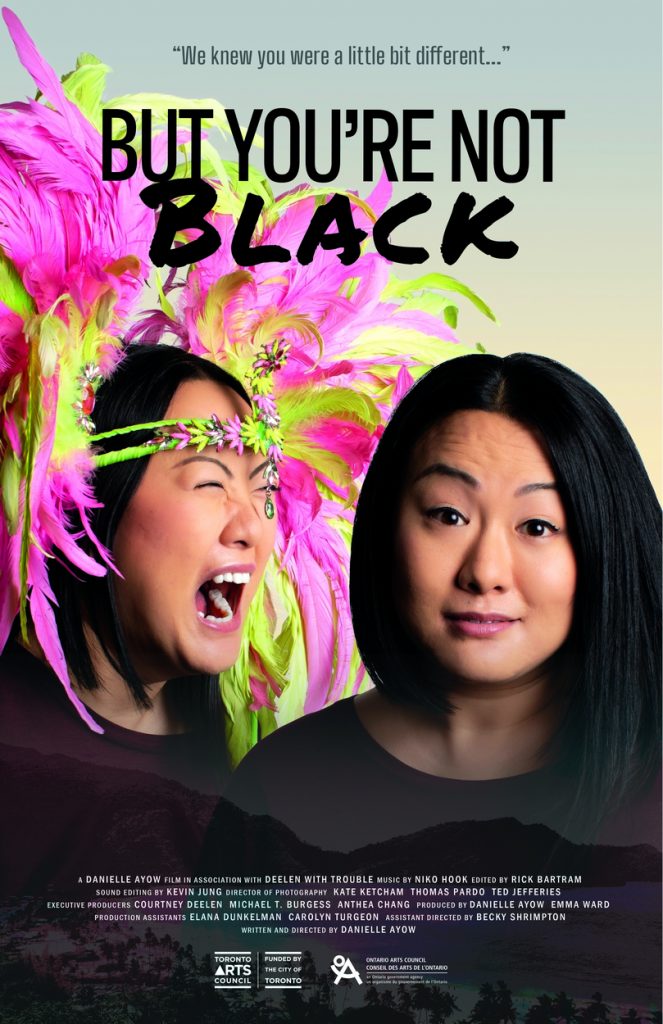
Photo courtesy of Danielle Ayow
Her most recent project involved writing and directing the deeply personal documentary “But You’re Not Black,” which explores the shared joys and challenges many face growing up as Chinese Caribbean in North America. Danielle Ayow well remembers her university days where many people would challenge her cultural affiliation. They’d say, “But you’re not Black,” or ask, “Which parent is mixed?” Fed up, Ayow joked about “this nonsense,” but her frustration fueled what would become a powerful endeavor. She remembers saying, “I’m going to make a documentary that talks about the Chinese immigrants coming to the Caribbean, and that will just help educate the world.”
The project took three years to complete as Ayow spoke with family and other Chinese Caribbean people about their collective experience. The film is touring the festival circuit in North America and the Caribbean, racking up awards along the way. So far, it has earned the Audience Award at the 2020 Boston Asian-American Film Festival and the Best Documentary Award at the 2020 CaribbeanTales International Film Festival.
And as an actor, Danielle Ayow is already building an impressive resume with appearances on hit shows like “The Handmaid’s Tale,” “Nurses” and the upcoming, highly anticipated miniseries “Station Eleven.” Whether in front of or behind the camera, she hopes to broaden people’s understanding of complex identities. “Because,” Ayow says, “We have to recognize that there is a lot of diversity within the diverse.”





















